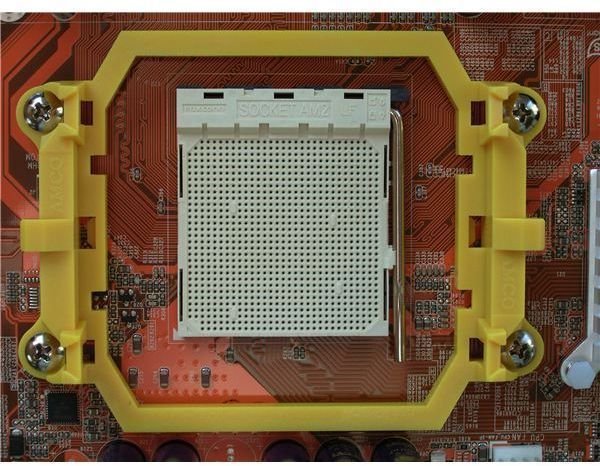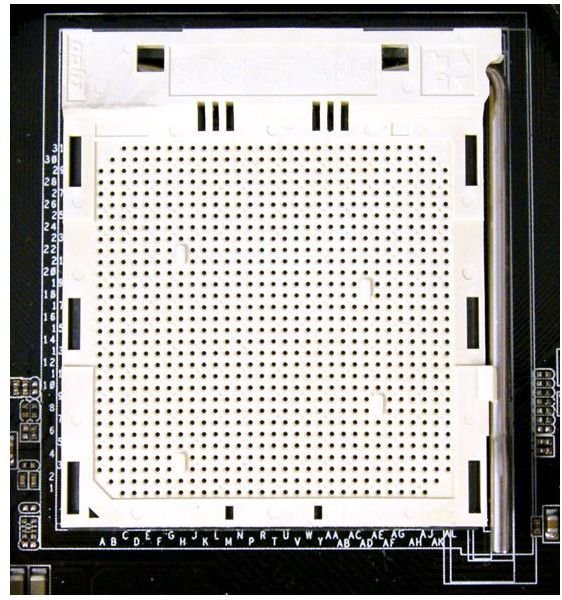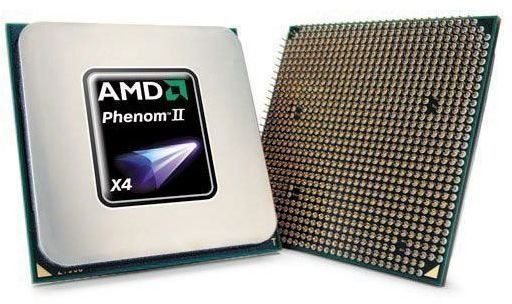Processor Sockets - Socket AM2, AM2+, and AM3 Compatibility
So Many Sockets!
When it comes to changing to a new processor socket, Intel tends to be definitive in its implementation. A processor listed as having a specific socket type will work only with that specific socket type, and nothing else. In most cases, the processor won’t even fit into a motherboard with a different socket, much less boot up. This helps reduce confusion about what processors will fit into what sockets, but also makes the upgrade path of Intel products very restrictive. You either have a LGA1366 motherboard or you don’t.
AMD has a more organic approach to sockets. Since the introduction of the AM2 socket, AMD’s products have exhibited varying degrees of compatibility between new and old socket types. This is evident in the naming schemes used by the company, as AMD has progressed from AM2 to AM2+ and now AM3. The advantage of this is that having an AM2 board does not mean that you are locked into only using older AM2 processors, creating a less restrictive upgrade path. As long as your motherboard manufacturer has been providing BIOS updates, it is possible that you’ll be able to use a several year old motherboard with a Phenom II 940. However, there are some pitfalls that come with this less restrictive method, as compatibility is not complete and there are certain hardware combinations that can have difficulties you might not expect.
AM2 Soldiers On
Socket AM2 motherboards and processors first arrived at retailers back in 2006, making the socket about three years old. Normally, this would mean that the socket is at the end of its life-span - for comparison, Intel effectively announced the imminent obsolescence of LGA 775 late last year when it debuted Core i7 as an LGA 1366 processor. But AM2 continues on. There is little reason to believe that AMD will be quick to abandon its Athlon X2 processors, which remain entrenched as good values in the budget market, and AMD has also continued to provide those with AM2 motherboards with upgrade options.

Officially, AM2 is completely compatible with AM2+. However, there are unofficial difficulties that are common if you’re attempting to use a motherboard from the dawn of the AM2 socket with a new AM2+ processor. The first major obstacle will be BIOS compatibility. Obviously, a company can not program their BIOS to recognize processors that will show up three years later, so the stock BIOS on older AM2 motherboards is not going to recognize a new AM2+ processor. You’ll need to make sure your motherboard manufacturer has provided an updated BIOS with support for new processors.
More difficult to tackle can be the problem of power. New, high-clock, quad-core AM2+ processors draw much more power than old dual-core AM2 processors, and some old AM2 motherboards can’t provide the extra juice. This is a difficult problem to nail down, as both AMD and motherboard manufacturers are fairly silent on the issue. Some motherboard manufacturers do provide updated compatibility charts on their websites, however, so visiting the manufacturer’s website is a good place to start your investigation.
What about AM3? Surprisingly, AM2 does theoretically support AM3 processors. There is no inherent socket incompatibility, and Gigabyte lists some of its old AM2 motherboards as AM3 ready. There is, however, some red fine print that defines how the AM3 processor will be limited in the AM2 socket.
AM2+ as the Middle Child
As the years progressed onward and AM2 became older, it was clear that Intel’s LGA775 processors were generally slaying AMD’s AM2 offerings. AMD’s old Athlon X2 processors were simply not competitive with Core 2 Duos. The Phenom fared better, but AMD encountered problems with getting the Phenom’s clock speeds set high enough to make it competitive with Intel’s Core 2 Quad processors. So, AM2+ debuted.
The AM2+ socket added support for a quicker Hypertransport link and for split power planes between the processor and the memory controller. Perhaps more importantly to AMD’s plans, AM2+ released new motherboard specifications that required AM2+ motherboards to be capable of providing more juice to the processor. This was an absolute necessity as the only Phenoms that AMD had which were in any way competitive with the Core 2 Duos or Core 2 Quads were power hogs, and motherboards built around the old AM2 specification were often incapable of providing the required power.
As mentioned above, AM2+ is officially completely compatible with AM2. In practice, this official line seems to be one hundred percent correct. If you have an AM2+ processor, then any AM2 processor should work. The Socket AM2+ is also completely compatible with new AM3 processors, and as long as your BIOS supports the new AM3 processor, you should not run into any issues. AM3 processors have a solid DDR2 memory controller and run within the same power requirements of AM2+ processors.
AM3 Steps Slightly Forward

AM3 is an extremely recent socket, so recent that only a handful of AMD processors and motherboards actually use this socket - in fact, even the top-of-the-line X4 920 and X4 940 are AM2+ processors. The only AM3 processors available at the time of this writing are the AMD X3 710, the AMD X3 720, and the AMD X4 910.
In the short term, AM3 is not a significant step forward, as the only significant feature which has been added to the AM3 processors is support for DDR3 memory. Currently, DDR3 memory does not offer a significant performance increase over DDR2, but as hardware progresses it is expected that DDR3 will become the standard of the industry, putting socket AM3 in a better long-term position.
Like said previously, AM3 processors are fully compatible with the AM2+ socket, contingent on a BIOS update of the AM2+ motherboard (and many AM2+ motherboards are currently shipping with a BIOS version which supports AM3 processors). However, the AM3 socket is not compatible with AM2+ processors. This is superficially because the AM3 socket has two less pins than the AM2+ socket, so AM2+ processors do not fit. However, hardware websites which have removed those pins from the AM2+ processor so the processor fits have not had any success getting the AM2+ processor to work. In other words, if you have an AM2+ motherboard, you can use it with any AM3 processor you’d like. However, if you have an AM3 motherboard, you can only use it with AM3 processors.
Image credits: Anandtech
References
Anandtech: AMD Phenom II X4 920 and 940 Review
TechPowerUp: AM2+ and AM3 Compatible with AM2 Motherboards
Images are from AMD press material
